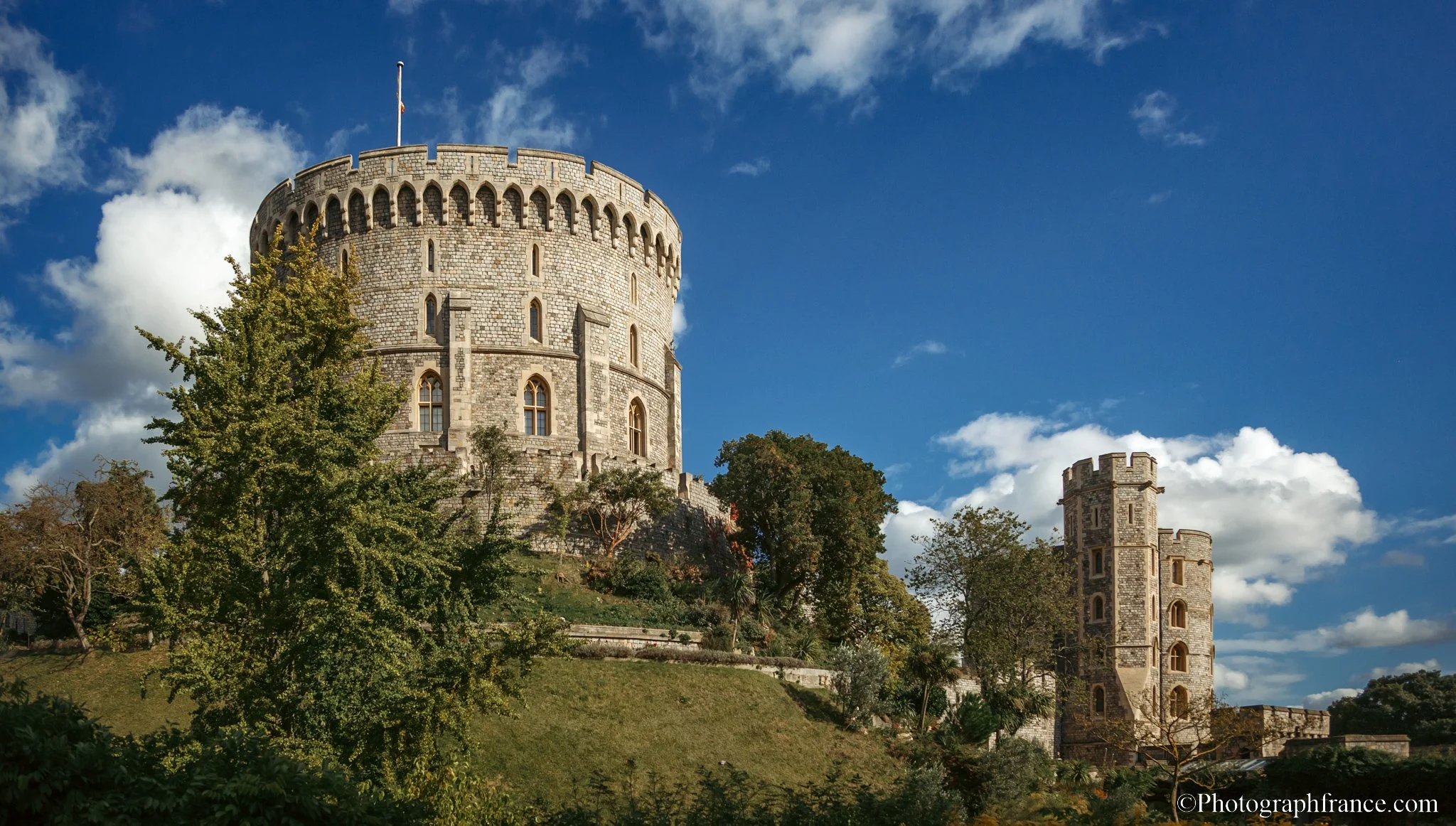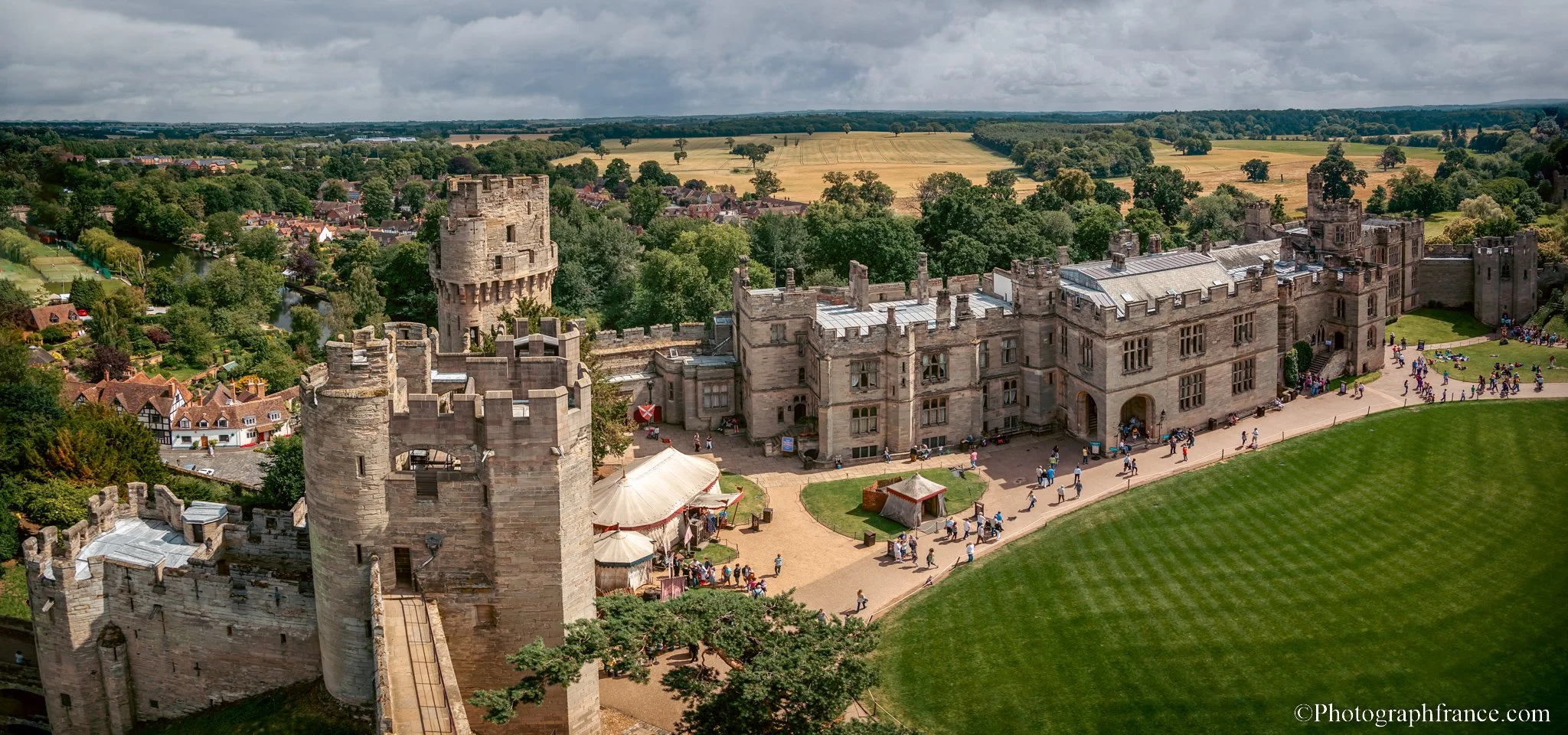The Frenchification of England
Dover Castle
When folk in Normandy quip William I civilised England, they tend to forget the Romans did it first. However, whatever Anglo-Saxons learned about civilised society had disappeared by the time the Normans arrived.
Some sensitive souls in England are not comfortable with the epithet William the Conqueror. They prefer William the Bastard or William I.
In Normandy William (Guillaume) was a mere duke with a dodgy heritage. What he wanted to be was King of England. To achieve that he needed an army and an invasion fleet but his fellow men were extremely reluctant to oblige. The only way he could persuade them was to promise them land, lots of land. He kept his word.
Windsor Castle
In 1066, about five thousand Anglo-Saxons owned large tracts of land. Twenty years later, just four are listed in the Domesday Book. The biggest boast of many of today’s English aristocrats is that their ancestors came over with William. Some French names survive. William gave a huge swathe of north London to the de Fiennes family (present day Finsbury, the Fiennes borough).
The new landowners, being Normans, set about planting vines but the grapes didn’t ripen so used the wine for vinegar. Until they imported ‘proper’ wine from home they preferred to drink cider.
The Romans introduced Anglo-Saxons to wine. The Normans introduced them to cider. William is thought to have brought casks of cider with him. Even today, Normandy cider is still considered by many as the best there is.
Warwick Castle
William of course imported his mother tongue. Norman French was the official language of England for three hundred years although it’s doubtful many ordinary folk could speak it. Even today, although sixty percent of English is French, we still struggle. Alexandre (The Three Musketeers) Dumas has D’Artagnan say ‘English is little more than badly pronounced French’.
The English class system began with William. He introduced the feudal system which classified people in order of importance. The king was at the top, followed by the barons who gave land to the knights who rented parcels of it to serfs. Everybody knew their place in society.
One has only to think of the hilarious Two Ronnie's Sketch. Ronnie Barker: I look up to him [John Cleese] because he is upper class, but I look down on him [Ronnie Corbett] because he is lower class. Corbett: I know my place.
With William came the certainty of superiority the English are infamous for. They looked down on the Welsh, the Scots and the Irish. The English had a French king who brought French standards, values and attitudes, a different way of life, a different, superior, sophisticated culture. They had the French language, French wine, astonishing architecture and new towns. England was experiencing a building boom. Construction had begun on fifteen great cathedrals.
Durham Castle (Left), Durham Cathedral (Right)
Above all, they were superior because they didn’t keep slaves. Before William, England was a slave owning and slave-trading society. Ten per cent of the population were slaves (some sources say thirty per cent). They were bought and sold individually, separated from their families, punished by beating, and even killed by their masters if they stepped out of line. Male slaves were stoned, females were burned.
The Westminster Council ruled that 'no one is henceforth to presume to carry on that shameful trading whereby heretofore men used in England to be sold like brute beasts.'
England has the Normans to thank for much of its thriving tourist trade. Thousands, millions even, make the pilgrimage to see; the Tower of London; Dover, Warwick, Durham and Windsor Castles; stunning abbeys and cathedrals including St. Albans, Canterbury, Gloucester, Salisbury, Lincoln, Worcester, Peterborough and York.
Built on a scale never before seen in England, Winchester Cathedral, begun in 1079 was larger than any church in northern Europe.
In which of his astonishing English cathedrals does William rest in peace (he died in 1087)? None. He left instructions he was to be buried in Normandy, in the Abbaye-aux-Hommes he built in Caen (the author has visited his elaborate tomb).
The Normans have it. They did civilise England. William brought profound changes for the better. He forged a mutually amicable and beneficial bond between France and England.
Post by Pamela (BA History of Art). Artwork by Mark.




